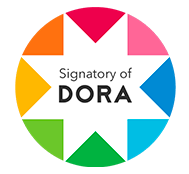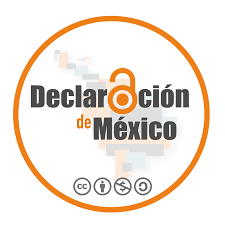Experience in virtual practice of music pedagogy in times of COVID-19
DOI:
https://doi.org/10.24215/18530494e062Keywords:
Virtual Education, Music Education, online learning, pandemic, COVID-19Abstract
The aim of this research was to develop a virtual experience in the initial practice of students of Pedagogy in Musical Education (PEM) associated with the Virtual Musical Initiation Program (PIMV) in times of COVID. An investigation of quantitative methodology is presented, of a quasi-experimental design, at a descriptive level with longitudinal application. During the 2 years of the Covid-19 pandemic, the subject of Initial Practice II in Music Pedagogy (PEM) had to be developed in a virtual format through a Virtual Musical Initiation Program (PIMV). Two surveys were applied to the participants: One survey was applied to music students from the Initial Practice II who participated as tutors in the PIMV, while the other survey was applied to the parents of the children who participated in the initiation program. The results show that the application of the PIMV was well accepted by the students in practice, 72% of them consider it positively and 36% see it as a sufficient practical activity. Regarding the parents, there is a good evaluation of this program in both years, with 95.5% good and very good in year 1 and 100% good and very good in year 2. In general, the Virtual practice experience is valued as positive and motivated university students to highlight in their curriculum the completion of Initial Practice II through the Musical Initiation Program in virtual format.
Downloads
Metrics
References
Aguilera, B., Cabrera, T., Duarte, J., García, N., Hernández, A., Pérez, J. y Guarda, P. (2022). COVID-19: evolución, efectos y políticas adoptadas en chile y el mundo. Dirección de Presupuestos. https://www.dipres.gob.cl/598/w3-article-266625.html
Alises-Camacho, M. (2017). Paradigma CBS: uso de dispositivos móviles en el aula de música en Educación Secundaria en Castilla-La Mancha. Educar en CLM. Revista de Participación, Investigación y Documentación, 1-15.
Almonacid-Fierro, A., Vargas, R., Mondaca, J. y Sepúlveda-Vallejos, S. (2021). Prácticas profesionales en tiempos de pandemia COVID-19: desafíos para la formación inicial en profesorado de Educación Física. Retos: Nuevas Tendencias en Educación Física, Deporte y Recreación, (42), 162-171.
Aróstegui, J. L. (2005). Las tecnologías de la información y de la comunicación en el aula de música. Musiker, 14, 173-189.
Barberi Ruiz, O. E., Garrido Sacán, J. E. y Cabrera Vintimilla, J. M. (2021). La educación inicial virtual en contexto de pandemia COVID-19. Aciertos y desafíos: una Aproxima-ción desde la praxis preprofesional de la carrera de Educación Inicial en la Universidad Nacional de Educación. Mamakuna: Revista de Divulgación de Experiencias Pedagógi-cas, (16), 77-87.
Broock, A. (2021). Musicalização infantil online: conexões e desafios. RELAdEI. Revista La-tinoamericana de Educación Infantil, 10(1), 157-169.
Broock, A.., Ferreira, A.., Formagio, G., Leão, S. y Pereira, V. C. (2022). Musicalização In-fantil e Ensino Remoto Emergencial: formação de professores de música em projeto de extensão. Diálogos Sonoros, 1(1), 1-26.
Camús Ferri, M. D. M., Arroyo Salgueira, S., Lozano Cabezas, I. e Iglesias Martínez, M. J. (2021). El aprendizaje profesional docente en prácticas adaptado al contexto de la pan-demia: estudio cualitativo. En R. Satorre Cuerda (ed.), Nuevos retos educativos en la enseñanza superior frente al desafío COVID-19 (pp. 36-46). Octaedro.
Castañeda, L., Esteve, F. y Adell, J. (2018). ¿Por qué es necesario repensar la competencia docente para el mundo digital? Revista de Educación a Distancia, (56), 1-20. http://dx.doi.org/10.6018/red/56/6
González-Calvo, G. y Fernández-Balboa, J. M. (2018). A qualitative analysis of the factors determining the quality of relations between a novice physical education teacher and his students’ families: implications for the development of professional identity. Sport, Education and Society, 23(5), 491-504. https://doi.org/10.1080/13573322.2016.1208164
González-Calvo, G., Barba-Martín, R. A., Bores-García, D. y Gallego-Lema, V. (2020). Aprender a ser docente sin estar en las aulas: la COVID-19 como amenaza al desarrollo profesional del futuro profesorado. International and Multidisciplinary Journal of Social Sciences, 9(2), 152-177. https://doi.org/10.17583/rimcis.2020.5783
Kogan, L., Papanikolaou, D., Seru, A. y Stoffman, N. (2017). Technological innovation, re-source allocation, and growth. The Quarterly Journal of Economics, 132(2), 665-712. https://doi.org/10.1093/qje/qjw040
Koops, L. H. y Webber, S. C. (2020). ‘Something is better than nothing’: early childhood caregiver–child music classes taught remotely in the time of COVID-19. International Journal of Music in Early Childhood, 15(2), 135-156. https://doi.org/10.1386/ijmec_00018_1
Labra Godoy, L. P. y Fuentealba Jara, R. (2011). Construcción de conocimiento profesional docente: el caso de la formación en la práctica [tesis de doctorado, Universidad Academia de Humanismo Cristiano].
Livari, N., Sharma, S. y Ventä-Olkkonen, L. (2020). Digital transformation of everyday life. How COVID-19 pandemic transformed the basic education of the young generation and why information management research should care? International Journal of Information Management, 55, 102183. https://doi.org/10.1016/j.ijinfomgt.2020.102183
Moreira, J. A. y Schlemmer, E. (2020). Por um novo conceito e paradigma de educação digital onlife. Revista UFG, 20(26). https://doi.org/10.5216/revufg.v20.63438
Nart, S. (2016). Music software in the technology integrated music education. Turkish Online Journal of Educational Technology, 15(2), 78-84.
Ochoa Gutiérrez, R. (2022). COVID-19 y virtualidad, aprendizaje para los docentes de inglés en México. Diálogos sobre educación. Temas Actuales en Investigación Educativa, 13(25), 00017. https://doi.org/10.32870/dse.v0i25.1145
Palazón, M., Sicilia, M. y Delgado, E. (2014). El papel de las redes sociales como generadoras de “amor a la marca”. Universia Business Review, (41), 18-39.
Pérez, J., Carrasco, F. y Vallejos, T. (2022). Medición de las habilidades musicales infantiles. Revisión sistematizada. Neuma: Revista de Música y Docencia Musical, (1), 104-121. http://dx.doi.org/10.4067/S0719-53892022000100104
Piachonkina, Y. (2020). Música en línea: estrategias y herramientas pedagógicas para la edu-cación musical virtual. En Blanco y Negro, 11(1), 14-22.
Pizarro-Vargas, J. (2021). Práctica profesional en contexto de pandemia: algunas reflexiones sobre el sistema educativo chileno. Revista Saberes Educativos, (7), 43-59. https://doi.org/10.5354/2452-5014.2021.64098
Reimers, F. M. y Schleicher, A. (2020). A framework to guide an education response to the COVID-19 Pandemic of 202. OECD. https://doi.org/10.1787/5b0fd8cd-en
Rubiano, Y. (2021). Reflexión y aportes de una experiencia pedagógica en educación musical para la primera infancia, en el período de marzo a junio de 2020 durante la pandemia por COVID-19 en una institución educativa de Bogotá-Colombia. Revista Compás Empresarial, 12(33), 40-67. https://doi.org/10.52428/20758960.v11i33.159
Saldaña Gómez, D. y González González, L. (2022). La práctica pedagógica en educación superior: una mirada desde los actores de la carrera de Educación Inicial (UNAE-Ecuador). Revista de Estudios y Experiencias en Educación, 21(46), 312 327. https://dx.doi.org/10.21703/0718-5162.v21.n46.2022.017
Published
How to Cite
Issue
Section
License
Copyright (c) 2023 Francisca Carrasco Lavado, Jazmín Sarita Pérez Serey

This work is licensed under a Creative Commons Attribution-NonCommercial-ShareAlike 4.0 International License.
Politica vigente desde octubre de 2019
La aceptación del manuscrito por parte de la revista implica la cesión no exclusiva de los derechos patrimoniales de los/as autores/as en favor del editor, quien permite la reutilización, luego de su edición (postprint), bajo una Licencia Creative Commons Atribución-NoComercial-CompartirIgual 4.0 Internacional (CC BY-NC-SA 4.0)
Acorde a estos términos, el material se puede copiar y redistribuir en cualquier medio o formato siempre que a) se cite la autoría y la fuente original de su publicación (revista y URL de la obra), se brinde el acceso a la licencia y se indique si se realizaron cambios; b) no se utilice el material para fines comerciales.
La cesión de derechos no exclusivos implica que luego de su edición (postprint) en Epistemus los/as autores/as pueden publicar su trabajo en cualquier idioma, medio y formato; en tales casos, se solicita que se consigne que el material fue publicado originalmente en esta revista.
Tal cesión supone, también, la autorización de los/as autores/as para que el trabajo sea cosechado por SEDICI, el repositorio institucional de la Universidad Nacional de La Plata, y sea difundido en las bases de datos que el equipo editorial considere adecuadas para incrementar la visibilidad de la publicación y de sus autores/as.
Asimismo, la revista incentiva a los/as autores/as para que luego de su publicación en Epistemus depositen sus producciones en otros repositorios institucionales y temáticos, bajo el principio de que ofrecer a la sociedad la producción científica y académica sin restricciones contribuye a un mayor intercambio del conocimiento global.
















